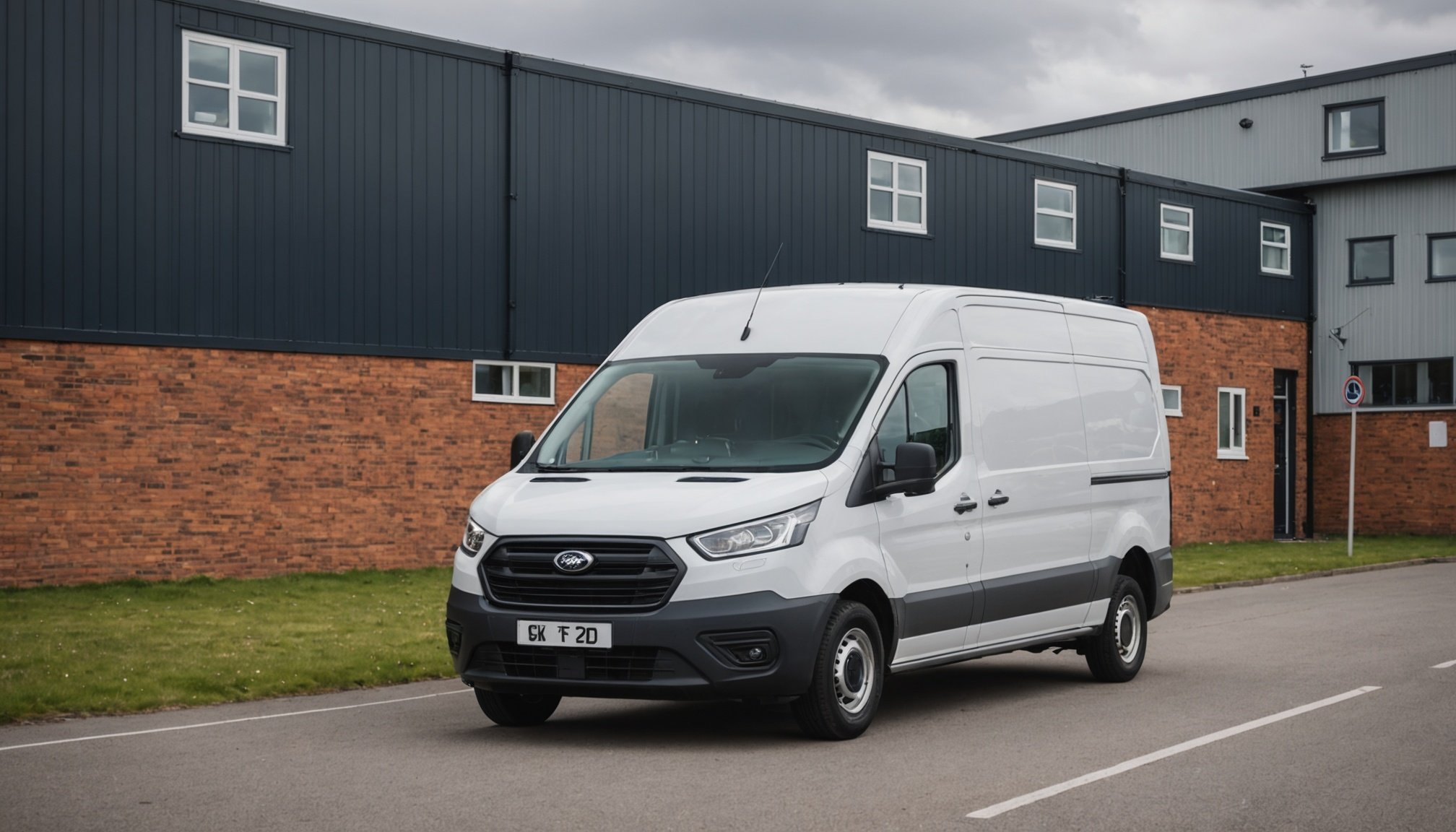Introduction to Cargo Vans
Cargo vans are essential vehicles tailored to meet the diverse needs of UK businesses. These versatile vehicles serve as a vital tool for transporting goods efficiently, making them a popular choice for businesses ranging from delivery services to tradespeople.
There are various types of cargo vans available in the UK market, each designed to cater to specific business needs. Some popular options include small, compact vans ideal for urban deliveries, medium-sized vans for general business use, and larger models that can handle bulkier loads. The UK market offers numerous cargo van options, allowing businesses to select a vehicle that aligns with their operational requirements.
This might interest you : Ultimate guide to ensuring your vehicle meets noise regulations in urban uk areas
Selecting the right cargo van is crucial for enhancing operational efficiency. A well-chosen van can streamline logistics, optimise delivery routes, and reduce costs. Factors such as size, load capacity, and fuel efficiency play a significant role in decision-making. Additionally, considering potential future business needs is essential when choosing a van to ensure scalability and long-term utility.
Understanding the various options and their respective benefits can help businesses in the UK make informed decisions, leading to increased efficiency and improved business outcomes. By carefully evaluating needs and aligning them with available van features, businesses can maximise their investment in a cargo van.
In parallel : Transitioning smoothly: your essential guide to shifting from company cars to personal vehicles in the uk
Popular Cargo Van Models in the UK
Exploring popular cargo van models can greatly aid businesses in making informed decisions. They offer a variety of features tailored to meet diverse needs.
Model Comparison Overview
Vans like the Ford Transit, Mercedes-Benz Sprinter, and Volkswagen Crafter dominate the UK market. Each caters to niche business demands. For compact loads, the Citroën Berlingo shines, while the Renault Master excels in handling heavier cargo effortlessly.
Performance Metrics
Performance metrics are crucial. The Ford Transit is lauded for its fuel efficiency and robust engine, ensuring long-term economy. The Mercedes-Benz Sprinter stands out due to its advanced technology and high payload capacity. Meanwhile, the Volkswagen Crafter’s ease of handling and spacious interior make it a top pick for daily operations.
Pricing Analysis
Affordability is a critical factor. The Citroën Berlingo serves well for budget-conscious businesses, while the Ford Transit offers a balance of pricing and features. The Mercedes-Benz Sprinter, though premium-priced, presents long-term value given its durability and technological advantages. Understanding the pricing differentiation helps in assessing the value for money for each model, aligning with specific business needs.
Key Criteria for Selecting a Cargo Van
Selecting the right vehicle is pivotal for operational success, considering various factors when choosing a cargo van. Evaluating size and load capacity ensures the van meets the requirements of your business. Small businesses might benefit from compact vans for urban deliveries, whereas larger enterprises could opt for vans with higher capacity. Understand your cargo needs thoroughly for the most suitable choice.
Fuel efficiency not only impacts your bottom line with lower fuel costs but is also crucial for meeting environmental criteria. Models with advanced engines typically offer better efficiency, reducing carbon footprints—a significant concern for modern businesses.
Considering the reliability and maintenance requirements of the van is key for reducing downtime and ensuring productivity. Opt for manufacturers known for sturdy builds and dependable service networks. Regular maintenance of such vehicles is often less cumbersome and cost-effective over time.
In summary, focus on these selection criteria—size, fuel efficiency, and reliability. It supports informed decision-making and aligns your purchase with both current and anticipated business demands, paving the way for an effective and sustainable fleet operation.
Understanding UK Regulations for Cargo Vans
Navigating UK regulations for cargo vans is critical for business compliance. These regulations dictate the legal requirements and operational standards for commercial vehicles. It’s essential to understand the specific certifications and insurance mandates for your van. Complying with these requirements safeguards your business against legal issues.
Commercial Vehicle Requirements
For cargo vans, some key commercial vehicle requirements include obtaining the right licences and keeping up-to-date with vehicle roadworthiness standards. The Driver and Vehicle Licensing Agency (DVLA) provides guidelines on vehicle categorisation and road use, ensuring that your van is suitable for commercial operations.
Legal Considerations
Procuring the necessary insurance policies, such as comprehensive coverage including liability, is paramount to protect against accidents or damage. Additional legal considerations involve adhering to weight limits and ensuring regular vehicle inspections, maintaining both safety and compliance.
Environmental Impact
Current environmental regulations are increasingly influencing van choices, with benefits for low-emission vehicles through government incentives. Understanding the carbon emission requirements and opting for environmentally friendly models can align your business with sustainable practices while potentially reducing costs.
Staying informed about these regulations ensures smooth operations and helps future-proof your business from unexpected legal challenges.
Cost Analysis and Financing Options
When considering cargo van costs, evaluating both initial purchase prices and long-term ownership expenses is essential. Initial costs vary significantly depending on the brand, model, and features. However, businesses must also factor in ongoing expenses such as maintenance, fuel, insurance, and potential repairs, affecting total cost of ownership.
Financing options provide solutions for businesses seeking flexibility in acquiring cargo vans. UK companies can explore alternatives like hire purchases, where payments are spread over an agreed term, or leasing, which often has lower monthly payments compared to purchasing outright. These options allow businesses to manage their cash flow while still meeting operational needs.
Budget considerations are crucial in selecting a van that aligns with financial constraints. To make informed decisions, businesses should assess their operational needs and choose features that maximise efficiency without unnecessary expenses. Budgeting tips include comparing different financing offers, prioritising necessary van features, and considering potential cost savings from fuel-efficient models. These strategies help businesses to balance performance needs with budget restrictions effectively. By understanding the cost implications and available financing avenues, companies can optimise their investment in cargo vans, ensuring both affordability and operational success.
Case Studies of Successful Cargo Van Utilization
Implementing cargo van solutions can significantly enhance a business’s operational efficiency. Real-world case studies provide insight into how UK businesses successfully leverage cargo vans to achieve their goals.
One notable example is a UK-based courier company that expanded its reach by choosing the right fleet of cargo vans. By selecting compact, fuel-efficient models, they reduced operational costs while improving delivery times. This strategic decision allowed them to efficiently navigate urban environments, leading to increased customer satisfaction and business growth.
In another instance, a local tradesperson increased productivity by investing in reliable, medium-sized vans with custom storage solutions. This investment enabled the secure transportation of tools and materials, minimising downtime and ensuring maintenance was straightforward.
Key takeaways from these experiences highlight the importance of selecting a cargo van that meets business-specific needs. Prioritising factors like size, load capacity, and fuel efficiency can drive operational success. Moreover, businesses should consider adaptability for future growth, ensuring their fleet can accommodate evolving demands.
These case studies illustrate how choosing the right cargo van options not only enhances current operations but also sets a solid foundation for scalable future success. UK businesses can learn from these success stories, applying similar strategies to maximise their potential.
Conclusion and Additional Resources
Selecting the right cargo van is vital for UK businesses looking to improve operational efficiency and meet specific business needs. With a multitude of models to choose from, businesses must carefully consider factors like load capacity, fuel efficiency, and maintenance requirements. These key considerations ensure that their investment aligns with current demands and future growth potential.
For business owners eager to delve deeper into the world of cargo vans, exploring additional resources can be invaluable. Comprehensive guides and case studies offer further insights into model-specific features and real-world results, aiding informed decision-making. Taking advantage of expert advice can illuminate nuances in choosing the perfect van tailored to your unique business operation.
When navigating this landscape, experienced consultants and dedicated online platforms provide rich veins of information. These expert-endorsed resources present the latest trends and emerging technologies in cargo van design, ensuring you remain competitive and equipped to meet evolving demands.
By immersing in a well-rounded understanding through these resources, your business can confidently make fleet decisions that deliver both short-term and long-term benefits. For tailored expert advice or personalised consultations on your fleet options, reaching out to industry specialists can solidify your path to enhanced operational efficiency.









